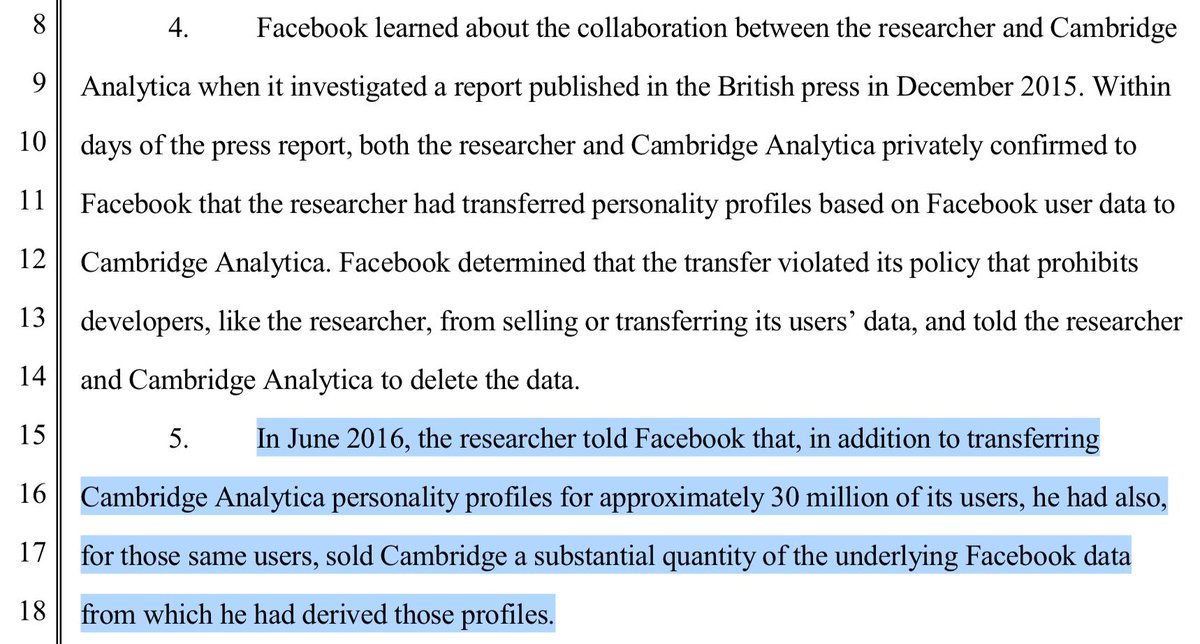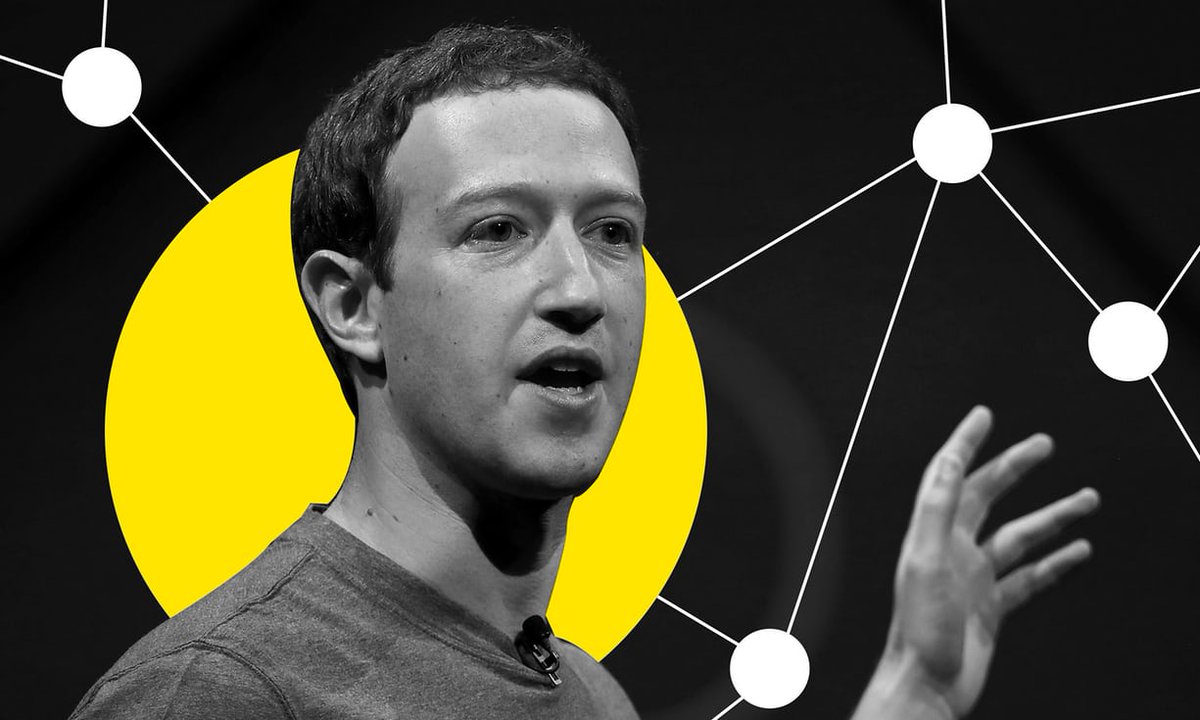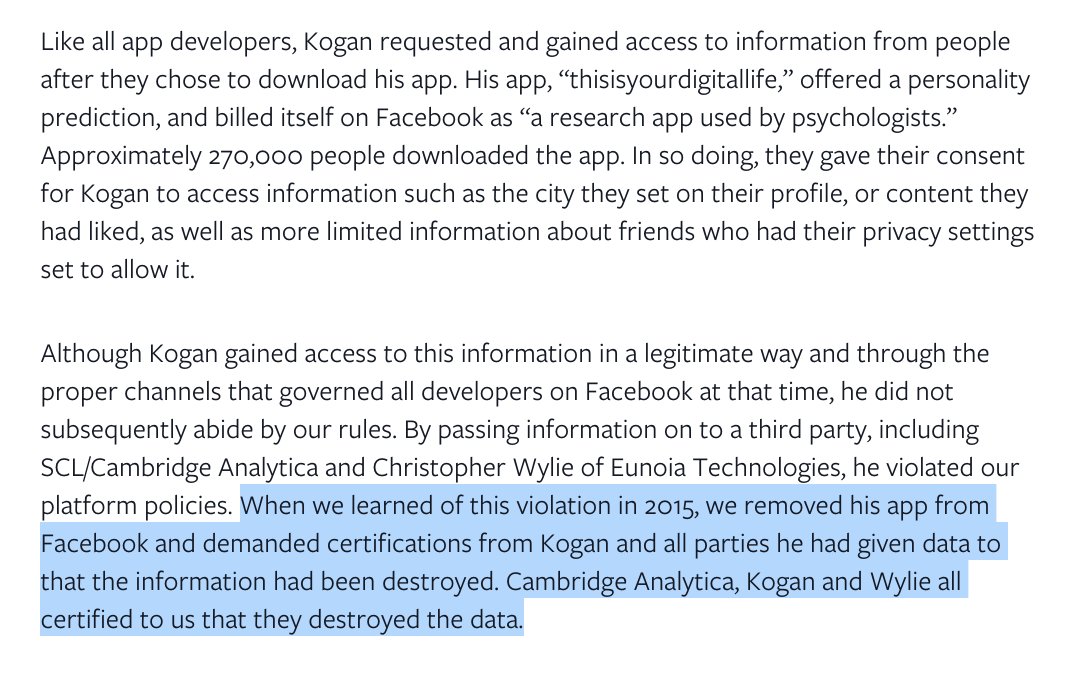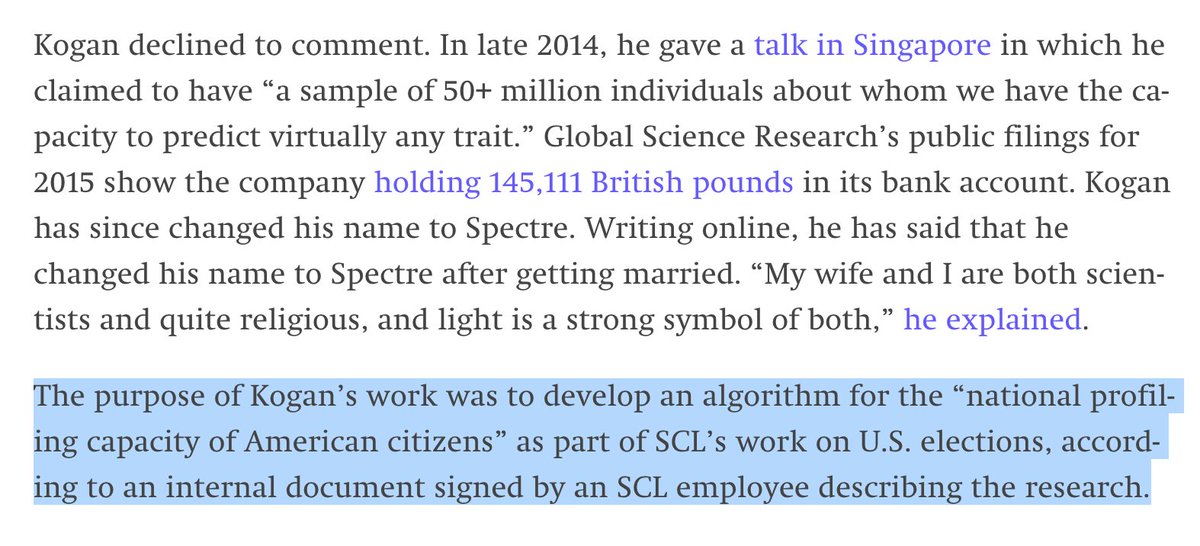Today it published them – and they show employees were worried about CA three months before FB originally claimed.
telegraph.co.uk/technology/201…
But it also shows that FB has been, let's say, economical about what /else/ it knew outside that narrative
In the spring of 2018, the Observer revealed that Cambridge Analytica had improperly harvested data from around 50m Facebook profiles.
The kicker? Facebook had known since 2015, told nobody, & taken "only lmited steps" to fix things theguardian.com/news/2018/mar/…
"Ted Cruz’s presidential campaign is using psychological data based on research spanning tens of millions of Facebook users, harvested largely without their permission."
theguardian.com/us-news/2015/d…
The internal documents do indeed show that FB employees were worried by the Guardian's story, which sparked a flurry of discussion and crisis management.
Yet it also shows that those employees had already been investigating CA... since September 22, 2015
"This document proves the issues are separate; conflating them has the potential to mislead people," said an exec today.
newsroom.fb.com/news/2019/08/d…
But was this really "separate" from the prior issue? I have some doubts.
Notably, FB has said that its engineers found no evidence of scraping by CA – but not that they /finished/ their probe.
In the meantime, we now enough to say: yes, this document confirms the bare bones of the story that FB has told until now. But it raises a lot of questions about what exactly that story might be missing.
Even if the issue raised in Sep 15 /is/ totally separate to the one which killed CA, isn't it kind of weird that FB never mentioned it when legislators asked what it knew?
"...okay, so I did hear that she had also tried to sell us forged paintings in 1984. But these are totally separate issues!"
(Are you a huge nerd? You can read the full document here!) newsroom.fb.com/news/2019/08/d…













